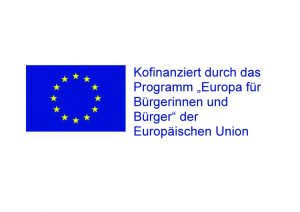
- Diese Veranstaltung hat bereits stattgefunden.
Die Zukunft Europas – die europäische Identität und die politische Landschaft
15. Februar 2019 @ 17:00 :16. Februar 2019 @ 17:00
SLOVENSKO PANEVROPSKO GIBANJE – PANEUROPA BEWEGUNG SLOWENIEN
JOINT CITIZENS’ FORCES – COMMON EUROPEAN FUTURE
INTERNATIONALE KONFERENZ 15. bis 17. Februar 2019 – INTERNATIONAL CONFERENCE February 15 – 17, 2019
Die Zukunft Europas: Die europäische Identität und die politische Landschaft der EU
The Future of Europe: European identity and EU political landscape
PROGRAMM: 15. – 17. Februar 2019, Wien
Die Teilnahme an der Konferenz ist kostenlos, eine Anmeldung ist erforderlich.
Konferenzsprachen: Deutsch und Englisch (Simultandolmetsch)
Program: February 15 – 17, 2019, Vienna
Participation is free, Registration is requestet!
Conference languages: German and English (Interpretation)

Freitag, 15. Februar 2019
Veranstaltungsort: Haus der Industrie, Schwarzenbergplatz 4, 1030 Wien
18.00: Eröffnung: Europa – Quo Vadis?
Karl von Habsburg, Präsident der Paneuropabewegung Österreich
Michael Löwy, Industriellenvereinigung, Bereichsleiter Internationale Beziehungen
Laris Gaiser, Präsident der Paneuropa Bewegung Slowenien
Alain Terrenoire, Präsident der Paneuropa-Union
Johannes Peterlik, Generalsekretär Bundesministerium für Europa, Integration und Äußeres, Österreich
Karoline Edtstadler, Staatssekretärin Innenministerium
Damir Črnčec, Staatssekretär im Kabinett des Premierministers der Republik Slowenien
Moderatorin: Gabriela Stimpfl-Abele, Paneuropabewegung Österreich
20.00 – 22.00: Netzwerktreffen
Friday, February 15, 2019
Venue: Haus der Industrie, Schwarzenbergplatz 4, 1030 Wien
18.00: Opening: Europa – Quo Vadis?
Karl von Habsburg, President Paneuropamovement Austria
Michael Löwy, Federation of Austrian Industries, Director of International Relations
Laris Gaiser, President der Paneuropa Movement Slovenia
Alain Terrenoire, President Paneuropa-Union
Johannes Peterlik, secretary general federal ministry for Europe, Integration and Foreign Affairs, Austria
Karoline Edtstadler, state secretary ministry of interior, Austria
Damir Črnčec, state secretary in the cabinet of the prime minister, Slovenia
Moderator: Gabriela Stimpfl-Abele, Paneuropa Movement Austria
20.00 – 22.00: networking and cultural evening
Samstag, 16. Februar 2019
Veranstaltungsort: Haus der Industrie, Schwarzenbergplatz 4, 1030 Wien
09.00 – 10.30: Mehr europäische Integration für weniger Euroskeptizismus
György Nógrádi, Corvinius Universität, Ungarn
Jolanta Szymanska, Polnisches Institut für internationale Beziehungen
Markus Tschank, Abgeordneter zum Nationalrat, Österreich
Moderator: Teodora Ladjic, Paneuropa Union Montenegro
10.30 – 11.00: Kaffeepause
11.00 – 12.30: Die politische Uneinigkeit als Grundlage für den Euroskeptizismus
Lojze Peterle, MEP, Slowenien
Martin Kastler, Hanns-Seidel-Stiftung, Repräsentant und Regionalleiter CZ, HU, SK
Karlis Bukovskis, Stellvertretender Direktor Lettisches Institut für internationale
Angelegenheiten, Lettland
Volodymyr Shulga, Euro-Atlantik-Kommunikation, Ukraine
Moderator: Marko Balažic, Fokus 2031, Slowenien
12.30 – 13.30: Mittagspause
13.30 – 15.00: Europawahl 2019 – neue Gesichter, altes Europa
Nini Tsiklauri, Kandidatin Europawahl, Österreich
Lukas Mandl, MEP, Österreich
Patrick Müller, Diplomatische Akademie, Wien
Jakub Wisniewski, GLOBSEC, Polen
Moderator: Rainhard Kloucek, Generalsekretär Paneuropabewegung Österreich
15.00 – 15.30: Kaffeepause
15.30 – 17.00: Die Zukunft Europas
Rajko Uskoković, Vizepräsident Paneuropa-Union Montenegro
Ihor Zhaloba, Präsident Paneuropa-Union Ukraine
Lucia Mokrá, Comenius Universität Pressburg (Bratislava), Slowakei
Marco Maggioni, Delegation des italienischen Parlaments, Zentraleuropäischen Initiative
Moderator: Annamária Csiszér, Vorstandsmitglied Paneuropa-Union Ungarn
17.00: Schlussbemerkungen
Sonntag, 17. Februar 2019
09.00 – 12.00: JOCICEF Generalversammlung
09.00 Heilige Messe, Salesianerinnenkirche, Rennweg 10, 1030 Wien
Saturday, February 16, 2019
Venue: Haus der Industrie, Schwarzenbergplatz 4, 1030 Wien
09.00 – 10.30: More European Integration for less Euroscepticism
György Nógrádi, Corvinius University, Hungary
Jolanta Szymanska, Head of the Program, Polish Institute of International Affairs
Markus Tschank, Member of Austrian Parliamant
Moderator: Teodora Ladjic, Paneuropa Union Montenegro
10.30 – 11.00: Coffee break
11.00 – 12.30: European political disunity – food for Eurosceptics
Lojze Peterle, MEP, Slovenia
Martin Kastler, Hanns-Seidel-Stiftung, Representative and regional director CZ, HU, SK
Karlis Bukovskis, Deput Director of the Latvian Institute of International Affairs, Latvia
Volodymyr Shulga, Euro-Atlantic Communications, Ukraine
Moderator: Marko Balažic, Fokus 2031, Slovenia
12.30 – 13.30: Lunch break
13.30 – 15.00: European election 2019 – new faces, old Europe?
Nini Tsiklauri, candidate European election, Austria
Lukas Mandl, MEP, Austria
Patrick Müller, Diplomatic Academy, Vienna
Jakub Wisniewski, GLOBSEC, Poland
Moderator: Rainhard Kloucek, secretary general Paneuropamovement Austria
15.00 – 15.30: Coffee break
15.30 – 17.00: The Future of Europe
Rajko Uskoković, Vice-President Paneuropa-Union Montenegro
Ihor Zhaloba, President Paneuropa-Union Ukraine
Lucia Mokrá, Comenius Universität Bratislava, Slovakia
Marco Maggioni, Delegation of the Italian Parliament at the Central European Initiative
Moderator: Annamária Csiszér, Member of Board Paneuropa-Union Hungary
17.00: Closing remarks
Sunday, February 17, 2019
09.00 – 12.00: JOCICEF General Assembly
09.00: Holy Mass, Salesianerinnenkirche, Rennweg 10, 1030 Wien
JOCICEF – Joint Citizens‘ Forces – Common European Future
Due to citizens’ mistrust in EU institutions and decision makers, we have to build on a strong bottom-up approach, empower the citizens and civil society organisations to be able to understand the importance of continuing on the path of European integration. Moreover, building trust and fostering mutual cooperation between citizens and policy makers at EU level is crucial. The aim of the project is to attract and engage European citizens and civil society organisations in structural dialogue with EU policy and decision makers on how to reduce Euroscepticism and spread the realisation that European integration is still necessary. Particular focus will be put on increasing the level of understanding of the EU policy-making process, how to transform and translate citizens’ ideas and needs in the EU decision-making process, how to improve the communication channels between citizens, civil society organisations and decision makers, and on the importance of having unified and strong common European policies and approaches. By offering a platform for engaging European citizens in debates on their and thus our common future, this project promises to be innovative, inclusive and interactive.